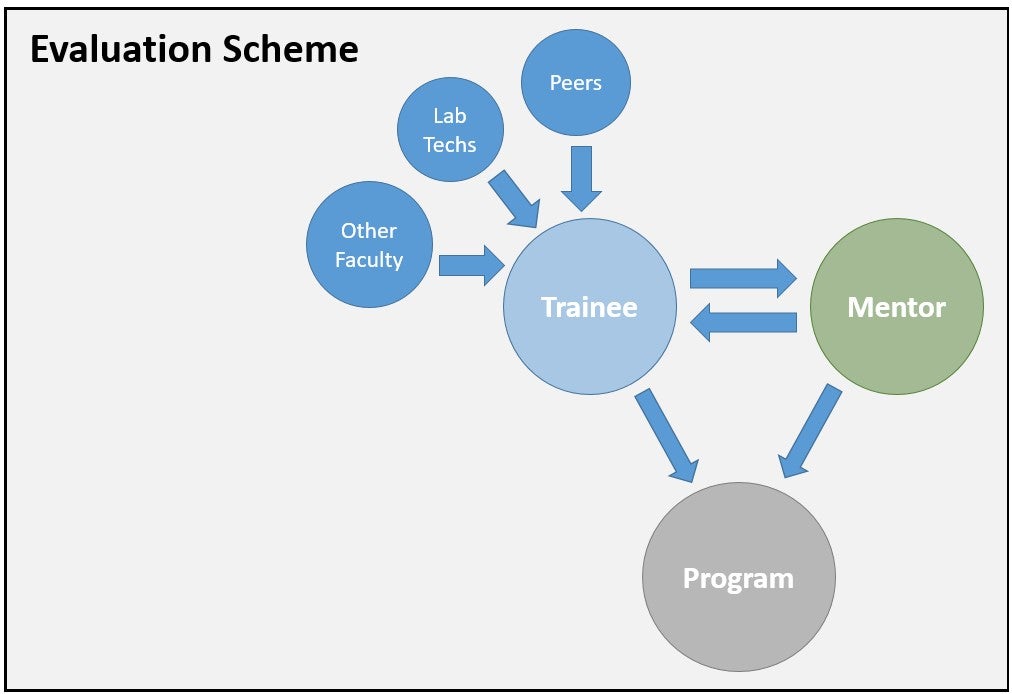1. Trainee evaluation
Evaluation of the trainee consists of both verbal and written assessments allowing the program to track and guide the trainee’s growth and fulfillment of expectations.
- Trainee self-assessment: through the development of an Individual Development Plan (IDP). The purpose of the IDP is to provide a planning process that identifies both professional development needs and career objectives. A link to the IDP form can be found here.
- Mentor evaluation: every six months, the mentor will be asked to meet with the trainee and provide verbal feedback.
- 360° evaluations: once a year, fellows will be evaluated by the key people they interact with on a regular basis, namely their peers, the laboratory technicians and the faculty.
- TL1 core evaluation: once a year, the trainee will meet with the assigned TL1 core director in order to review their entire progress.
- Progress tracking: each trainee will be asked to complete a brief inventory of their research products twice per year. This will include reporting the number of abstract submissions, publications, grants, and patents.
2. Training program evaluation
Evaluation of the training program is crucial to ensure continued effectiveness, identification of gaps and improvement in the training process. As such, the training program will be evaluated by both the trainees and participating faculty. Training program evaluation will include:
- Web-based survey to assess trainee satisfaction in relation to the quality of the conferences and the didactic curriculum, the research experience and the project mentors.
- Final “exit” interview and review with each trainee prior to graduation.
- Evaluation of ex-graduates via a questionnaire to survey ex-graduates about preparedness for different aspects of academic medicine, such as biostatistics, research design, grant and paper writing, and public presentation.
- A Program Evaluation Committee (PEC) will meet on a yearly basis. The Program Evaluation Committee will consist of the Program Director and key faculty involved in the training program. The PEC will meet yearly with a larger group of faculty and fellows to solicit positive and negative ideas related to the program and brainstorm about possible improvements.
- External review: physician-investigators from other institutions will be invited to attend fellow presentations as reviewers. Each trainee presents their work, followed by questions and critique. After the research presentations, the guest reviewers can meet with the Program Directors and training preceptors for a critique of the trainees and program, providing feedback and suggestions.
3. Evaluation of program effectiveness:
Evaluation of program effectiveness is geared towards tracking the following outcomes as a measure of the program’s success:
- Research dissemination: number of abstracts, presentations at conferences, and number of publications,
- Training support: number of grant submissions
- Innovation: number of patents
- T32 appointee career trajectory (towards research): whether or not the trainees remains in the research field.
- Trainees remaining in their area of research focus.
- Trainee promotion tracks: how long before the trainee is promoted to assistant and associate professor.
A summary of the evaluation schedule is presented in the table below.


